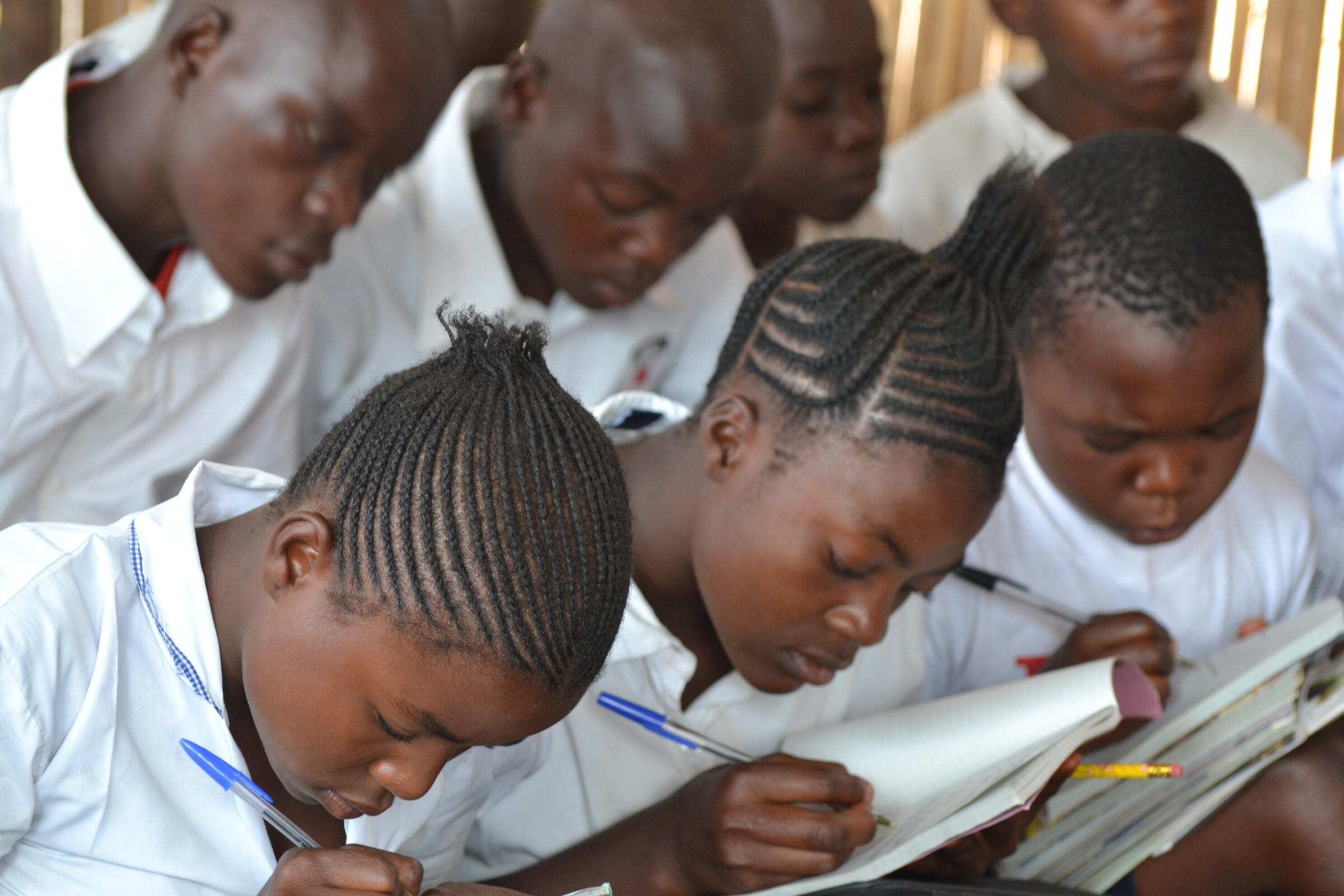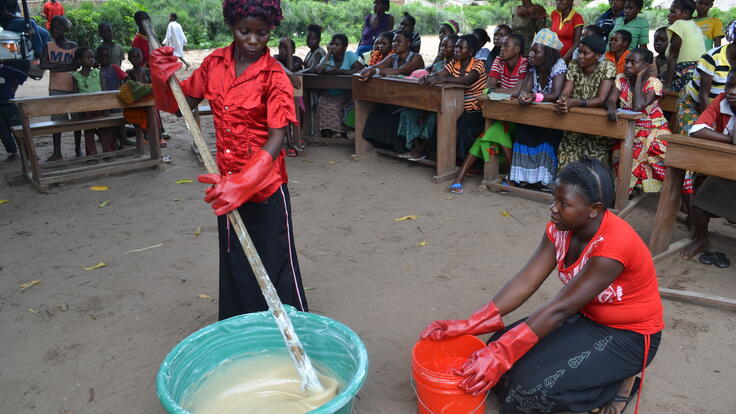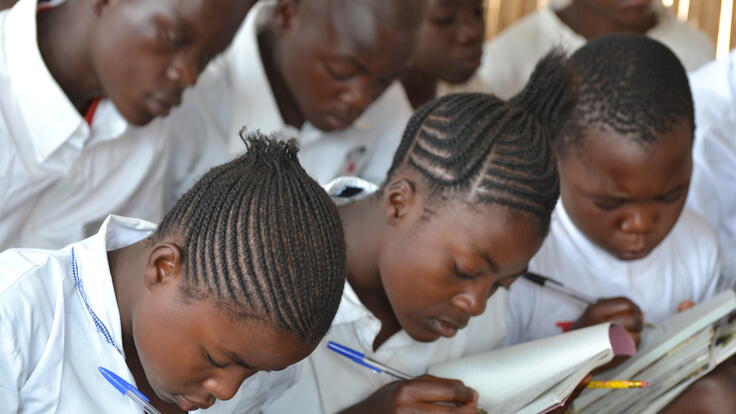
An estimated 31 per cent of school-age children have never set foot in a classroom in the Democratic Republic of Congo. The IRC has been actively working to support increased enrollment and attendance by building and renovating school infrastructure, training teachers and subsidising school fees for impoverished students. The IRC is committed to giving boys and girls, as well as illiterate men and women, a second chance.
Thousands of boys and girls unable to attend school because their parents could not afford the fees are now taking free accelerated-learning classes supported by the IRC.
Primary school teacher Modeste Kekelua explains how the IRC is training him and his colleagues in new methodology. “First, we do our lesson plans completely differently,” he says. “Instead of a yearly plan, we now detail everything on a weekly basis, which helps us focus. Second, we now teach our classes in a much more logical way. For example, during a reading comprehension class, we follow these steps: orthography, vocabulary, reading, comprehension and, lastly, writing. I am convinced that teaching according to these steps will help students better accumulate and retain knowledge."
The IRC is also supporting basic reading, writing and math classes for young men and women.
Community-based organisations also support literacy classes, offering vulnerable women of all ages the chance to learn how to read and write.
When families must choose which of their children they can afford to educate, boys typically take precedence over girls. This is due both to financial concerns as well as sociocultural traditions that discourage education for girls and promote early marriage and pregnancy. As a result, only 44.2 per cent of girls finish primary school. To address these challenges, the IRC is launching a project supporting girls who wish to enroll in school to acquire fundamental skills in reading and math. Over 56,000 girls will receive scholarships and 36,000 girls will attend after-school tutoring to help them complete the full six-year primary school curriculum.
The IRC is offering vocational training to young men and women to learn how to make soap. The IRC also teaches them how to set up cooperatives in order to sell their products in their communities.
The IRC is working with local communities to improve school infrastructure, including the construction or renovation of 2,300 classrooms. While communities can choose to improve roads, health centres or markets, the vast majority concentrate their resources on education, indicating the pervasive concern for their children’s future.
In conflict-afflicted North and South Kivu, the IRC has repaired or equipped schools that had been occupied by displaced people or suffered damage by armed groups or looters. Since December 2012, the IRC has provided almost a thousand desks to ensure a quick return to classes for students.
The IRC’s education interventions across several programmes are sponsored by the UK Department for International Development, Stichtung Vluchteling, USAID and an anonymous donor.

